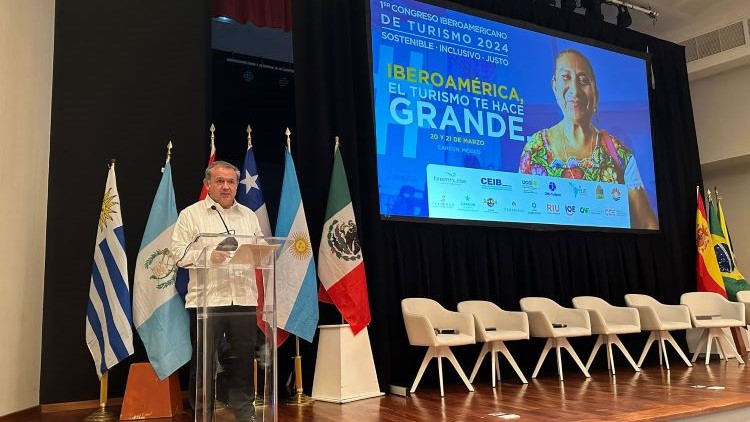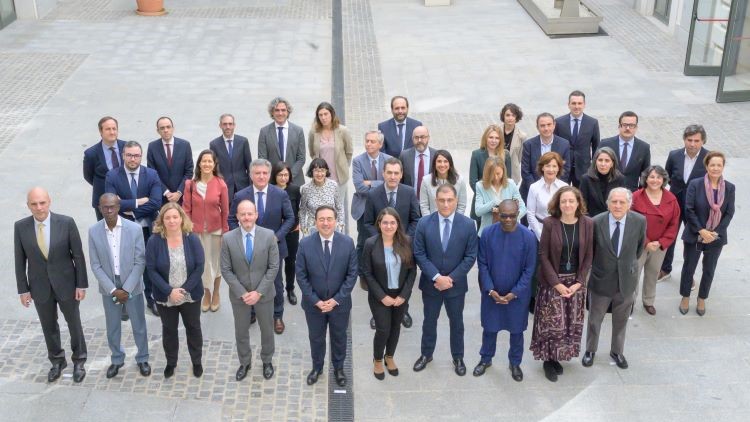The Diplomat
Colombia will host the next Ibero-American Congress of Sustainable, Inclusive and Fair Tourism, whose first edition was held this week in Cancún (Mexico) with the participation of more than 60 representatives of the public and private sectors from all over Ibero-America.
The meeting was organized by the Council of Ibero-American Entrepreneurs-CEIB and the Ibero-American Federation of Young Entrepreneurs (FIJE), in collaboration with the International Organization of Employers (IOE), the Government of Mexico and UN Tourism, and was attended by more of 60 representatives of the public and private sectors from all over Latin America, who addressed issues of interest to the region in the field of tourism.
Prior to the closing session, which took place yesterday, the president of ProColombia, Carmen Caballero, announced that Colombia, “the Country of Beauty”, will host the second edition of the Congress.
During the closing session, the permanent secretary of the CEIB, Narciso Casado, presented an Inventory of Tourism Priorities for the Ibero-American Space, which includes the main conclusions reached in Cancun by the public and private sectors of the 22 Ibero-American countries and in which the need to address the imminent transformation of the tourism workforce through an education and training approach that is accessible to all social segments, scalable to the entire tourism value chain, adaptable to new technological trends, agile in the face of market needs and consistent with the sustainability challenges facing the sector.
To this end, government representatives and business leaders advocated identifying and focusing efforts on vulnerable communities, moving towards a new paradigm of opportunity in which they can be key actors in the tourism value chain, facilitating their access to training, to opportunities for dignified and decent employment and to mechanisms that promote equity and labor inclusion.
Casado also spoke of promoting public policies that place social development at the heart of the competitiveness of destinations, that facilitate incentives and stimuli and channel cooperation so that the sector is a promoter of talent wherever it is found.
The document also highlights the importance of promoting and facilitating inspection, surveillance and control as mechanisms for the adequate formalization of all actors in the tourism service chain and as a strategy to guarantee that the negative environmental and social problems and impacts of the sector are addressed at all levels. It is also considered essential to promote tourism planning of the territory that responds to a sustainable vision and that is the result of the participation of all the social actors involved: local communities, businessmen, tourists, public institutions and expert voices.
The Inventory is also committed to implementing governance for resilience, with a comprehensive approach to tourism security that encompasses environmental security through healthy ecosystems, economic security by promoting the competitiveness of business actors, quality employment and good practices. working conditions for workers; social security for local communities, preventing negative impacts such as displacement, increased cost of living, restriction of access to basic services and gentrification, among others; and personal security, so that on the one hand it serves to combat crime, human trafficking and drug trafficking, and on the other hand, it protects the tourist as a consumer.
The public sector and the private sector also agreed on the need to stimulate the commitment and involvement of tourists in the structural transformation of the sector towards sustainability, promoting it to be part of the preservation of the natural environments of the destinations, the protection of cultural heritage. and social development through the consumption and experience of tourist services.
Finally, emphasis was placed on the importance of promoting the transfer of good practices at all levels of the value chain, constant public-private dialogue and communication of destinations in the Ibero-American space, promoting a new approach to competitiveness, based in sustainability, resilience and humanism.







